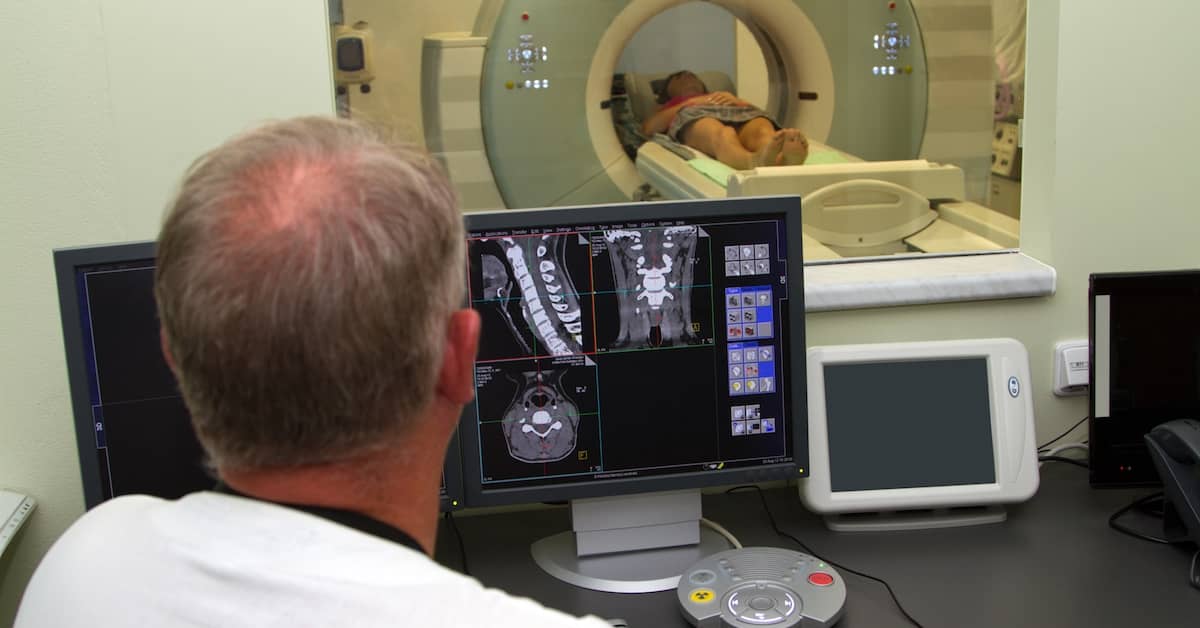
100-Year-Old Approach Earns New Respect
Magnetic simulation devices aren’t new. In fact, they’ve been around for over 100 years. But it wasn’t until the 1990s that the TMS machine was tested as a means to help ease depression. It was so effective, the FDA approved its use in 2008. And then in 2014, it was approved to help with migraines. What exactly is TMS? It’s a non-invasive procedure that uses a coil to emit a magnetic pulse. When it’s placed near a person’s head, the pulse stimulates the nerve cells in the area of the brain it’s pointed to. When a person has Alzheimer’s, the area of most interest is damaged areas or “dead zones” where their nerve cells and brain tissues have broken down, leading to dementia.TMS Gets Past “Dead Zones”
One of the things TMS does is help the brain create new neural pathways that seem to get around the dead zones. That makes it particularly interesting as a treatment for Alzheimer’s, especially when it’s combined with other brain activities. We know that keeping your brain active is one of the best ways to prevent cognitive decline. Taking advantage of those findings, a pilot study showed that when you combine repetitive TMS with challenging brain activities, people with Alzheimer’s get even better results.2 The pilot study tested seven participants. First, researchers established the participants’ baseline cognitive functioning. They used the Alzheimer’s Disease Assessment Scale-Cognitive (ADAS-cog) to assess their cognitive impairment and severity. The participants also received an MRI scan to pinpoint the brain areas most affected by the disease. This showed researchers where they should focus the TMS coils. It also determined the kind of cognitive training the patient should do. For example, the patient might get syntax and grammar tasks, comprehension and categorization tasks, spatial tasks, etc. The first part of the study was conducted for a period of six weeks. For five days each week, the participants received treatment for 45 minutes. They first received targeted TMS. Then they were given certain cognitive tasks to perform. After the six weeks, treatments were reduced to twice a week during a three-month “maintenance” period. Participants were retested at the end of the study. The researchers found an average 18% improvement in their ADAS-cog scores! While this study was small, a larger, more recent one with 130 participants came up with similar results.3 It was also the first phase III clinical trial in 15 years to test a completely new treatment. It used the same device as the pilot study – the neuroAD therapy system from an Israeli company called Neuronix. Based on the impressive results of these studies, last fall Neuronix applied for FDA clearance to use the device to treat Alzheimer’s.Can TMS Improve Memory?
These studies looked at how TMS can improve cognitive impairment, but what about memory? That’s what researchers wanted to find out in another recent study. So they looked at targeting TMS treatments to the precuneus. The precuneus is an area of the brain that spans both the left and right hemispheres. It’s involved in a number of cognitive functions such as our self-awareness, episodic memory, conscious thinking, and even the itch sensation. And it plays a key role in memory impairment in Alzheimer’s disease. Researchers already knew that targeting TMS to the precuneus in healthy people improves their short and long-term memory. As a result it made sense to test if it would help patients with early onset Alzheimer’s. First, researchers used the Rey Auditory Verbal Learning Test (RAVLT) to measure the participants' learning and memory functions. Then for two weeks, participants received TMS treatments directed at the precuneus. After the two weeks, they were given the RAVLT test again. There was an average 36% increase in the patients’ recall ability!4 There’s still more research to do in this area, but so far TMS shows considerable promise in improving symptoms of Alzheimer’s. The potential is exciting. If we find a way to slow the progression of the disease, then Alzheimer’s patients can continue to enjoy their lives for a longer period of time. Delaying Alzheimer’s has tremendous benefits for the families it affects, as well as our healthcare system.- https://www.express.co.uk/life-style/health/764838/alzheimers-news-magnetic-brain-training-technique-drugs
- https://www.ncbi.nlm.nih.gov/pubmed/21246222
- https://www.alzforum.org/news/conference-coverage/transcranial-magnetic-stimulation-ad-boasts-success-phase-3
- https://www.sciencedirect.com/science/article/pii/S1053811917310728?via%3Dihub
